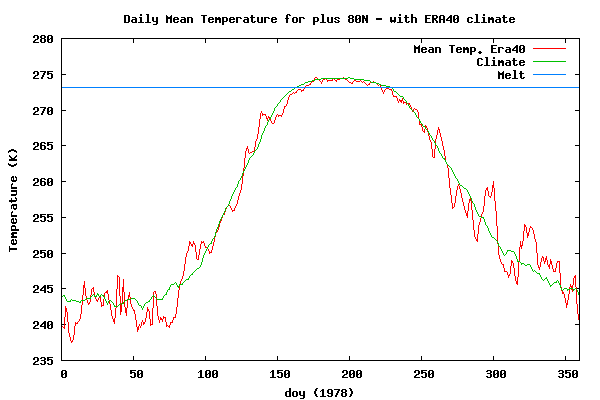In a 6 July 2009 interview with the Russian newspaper Novaya Gazeta, Obama gave the same false information on U.S. oil imports he has been repeating since at least February of this year:
We have known for decades that our survival depends on finding new sources of energy. Yet we import more oil today than ever before [Emphasis mine].
That quote is from the official White House transcript of the interview.
Obama was wrong in February and is wrong today.
The above chart from the U.S. Energy Information Administration, shows that U.S. oil imports peaked in November 2005 and have been declining ever since.
On the page at the above link, you may view a data table of the U.S. weekly oil imports from 1991 to date.
Now, I know the facts on this, you (now) know the facts on this, but the President of the United States keeps spouting inaccuracies about U.S. oil imports. I found this data very easily, and I would kinda think Obama—backed by dozens of staff and a trillion-dollar bureaucracy—could as well.
Yet Obama has been spouting this drivel since at least February 2009—even though the facts are laughably easy to obtain.
So my question is this:
Are Obama and his administration lying or simply ignorant and inept?
The answer has to be one of those two choices.
Frankly, neither answer sits well with me, nor should it with you.










I see as small decline to 2008, and then maybe a little more substantial drop. But one could easily argue that the import stayed the same from 2005 onward, and that would still be an all time high. In any case, the US is using way to much oil and it's strange how a supposedly smart country has not yet implemented large scale pollution free technologies. But well, no other country has. That fact is a much more worrying fact than your little dropping data points.
ReplyDeleteYour captcha for the comments is making it impossible to add comments. (yes, I am smart so I know how to do it anyways, but have a look at it....)
ReplyDeleteAnonymous said... 1
ReplyDeleteI see as small decline to 2008, and then maybe a little more substantial drop. But one could easily argue that the import stayed the same from 2005 onward, and that would still be an all time high.
Thank you for your comment.
Actually--and you may see the actual figures if you go to the link in the article--oil imports in November 2005 were at 15,217,000 barrels per day and have dropped to the current 11,883,000 imported barrels per day--a reduction of 3,334,000 per day.
Of course, there have been and still are fluctuations which render the following figure somewhat inaccurate but--for sake of argument--that would work out to 1,216,910,000 imported barrels per year less than 2005 levels!
A reduction of a billion-plus barrels of imported oil per year is certainly nothing to scoff at.
However, the point of the article was that Obama's statements of oil imports have been and continue to be, inaccurate and misleading.
If he knows the truth and is sensationalizing, he is deliberately defrauding the public and wasting tax dollars.
If he does not know the actual figures but is basing policy on inaccurate numbers, he is unknowingly defrauding the public and wasting tax dollars.
Either scenario represents unacceptable behavior for a public servant.
I am in complete agreement with you that we need to reduce pollution and oil-use dramatically, but people, politicians and corporations are appallingly resistant to change, so I'm not holding my breath.
Anonymous said... 2
ReplyDeleteYour captcha for the comments is making it impossible to add comments. (yes, I am smart so I know how to do it anyways, but have a look at it....)
ACK! No wonder it's been quiet in here, lately.
Problem should be fixed now, and thank you.
Smart people are always welcome.
Good and fast fix.
ReplyDeleteYou sound reasonable so I will agree that a drop of some 8 percent is huge indeed. But what exactly can we read from these numbers. If the US has build more refineries they import less 'products' of oil (but maybe more crude). Also, does it show the US is using less oil? Or that they can get or refine it cheaper in house. And is 'importing' buying from other countries? What if a US company is extracting it in Iraq or some place? I think Obama just wants to stress that imports and use are really high. And I agree with that. You are right that he should be fair and transparent but I fail a bit to see the importance in using other words to describe the current situation. So please explain why you think it is important to mention the drop you noticed? Should it influence reduction policies?
P.S. 8 percent is my calculation of the drop per year. Which is very good if it also would mean usage. So if it does I would actually agree with you that he or somebody should notice and mention this. I may have not thought the numbers through good enough. But I am not to sure still that it means what I would like it to mean, a drop in usage...
ReplyDeleteAnonymous said... 5
ReplyDeleteIf the US has build more refineries they import less 'products' of oil (but maybe more crude).
If you look at the chart and data table at this link:
http://tonto.eia.doe.gov/dnav/pet/hist/wcrfpus24.htm
You will see that domestic oil production peaked at 8.9 million barrels per day in January 1986, and has been in decline since--current U.S. production is at 5.2 Millions barrels per day versus 11.8 million imported barrels per day.
Using those figures, it can be seen that domestic production would have to increase about 3.25 times current rates to make the U.S. oil industry import-free. This is neglecting EIA projections that oil imports will decline by 20% over the next two decades.
it also neglects the about 1.9 million exported barrels per day from U.S. domestic production.
If, for example, we ceased those exports immediately, we could lower imports by that amount to 9.9 million imported barrels per day.
With that figure, domestic production would have to increase by only 2.75 times the current rate to make the U.S. oil industry import-free.
Certain projections based on EIA figures suggest about a 34% increase in U.S oil demand by the year 2030. If true, domestic production would have to increase accordingly.
However. In those two decades I would expect considerable changes in the way we do things:
-More fuel-efficient road, rail and air vehicles
-More efficient power plants
-Enhanced mass transportation in large cities
-More efficent lighting: Including expanded use of low-energy led and oled lights as well as properly-hooded outdoor lights--as opposed to current streetlight which waste 40-70% of their energy by shining into nthe sky instead of directing the light onto the ground.
-An increase in the number of corporate employees who work from a home-office
And numerous other factors
Also, does it show the US is using less oil?
ReplyDeleteIf you look at this chart:
http://tonto.eia.doe.gov/dnav/pet/PET_SUM_SNDW_DCUS_NUS_4.htm
You will see that demand for petroleum-derived products is currently on the increase in the U.S.
Or that they can get or refine it cheaper in house.
Generally speaking, it is cheaper to refine oil close to it's point of origin: Especially in countries which have lax or non-existent environmental regulations.
And is 'importing' buying from other countries?
The EIA defines imported crude oil thus: “Receipts of crude oil into the 50 states and the District of Columbia from foreign countries, Puerto Rico, the Virgin Islands and other US possessions and territories.”
What if a US company is extracting it in Iraq or some place?
Oil extracted on (under?) foreign soil and imported to the U.S. is considered imported oil regardless of the corporate entity involved.
I think Obama just wants to stress that imports and use are really high. And I agree with that. You are right that he should be fair and transparent but I fail a bit to see the importance in using other words to describe the current situation. So please explain why you think it is important to mention the drop you noticed? Should it influence reduction policies?
If a politician bases a policy on inaccurate numbers, how can one reasonably expect that policy to be carried out properly, efficiently and with a minimum of waste? Is the policy even necessary? Any oil-reduction policies will certainly be influenced by the numbers put forth--real or imagined.
Perhaps slightly off topic, but indicative of government-think, I remember a case during the Vietnam war in which 10,000 golf balls were shipped to a hill-top U.S. firebase carved out of the jungle. The base had 120 men, no golf course, no golf clubs, steep slopes on all sides and was surrounded by a mine-field beyond which lurked enemy snipers. Who on earth thought shipping 10,000 golf balls to such a place was a good idea? Why was the government stockpiling and transporting golf balls in the first place? Think of the effect on morale when the men couldn't get letters from home reliably but got a shipment of golf balls without even asking? Waste. Pure, unadulterated waste. And you paid for it.
But the bottom line is that which many people seem to forget: All politicians are our employees. If you have an employee who lies to you or is incompetent to do his job, you either straighten him out or fire him and replace him with someone who can do the job properly.